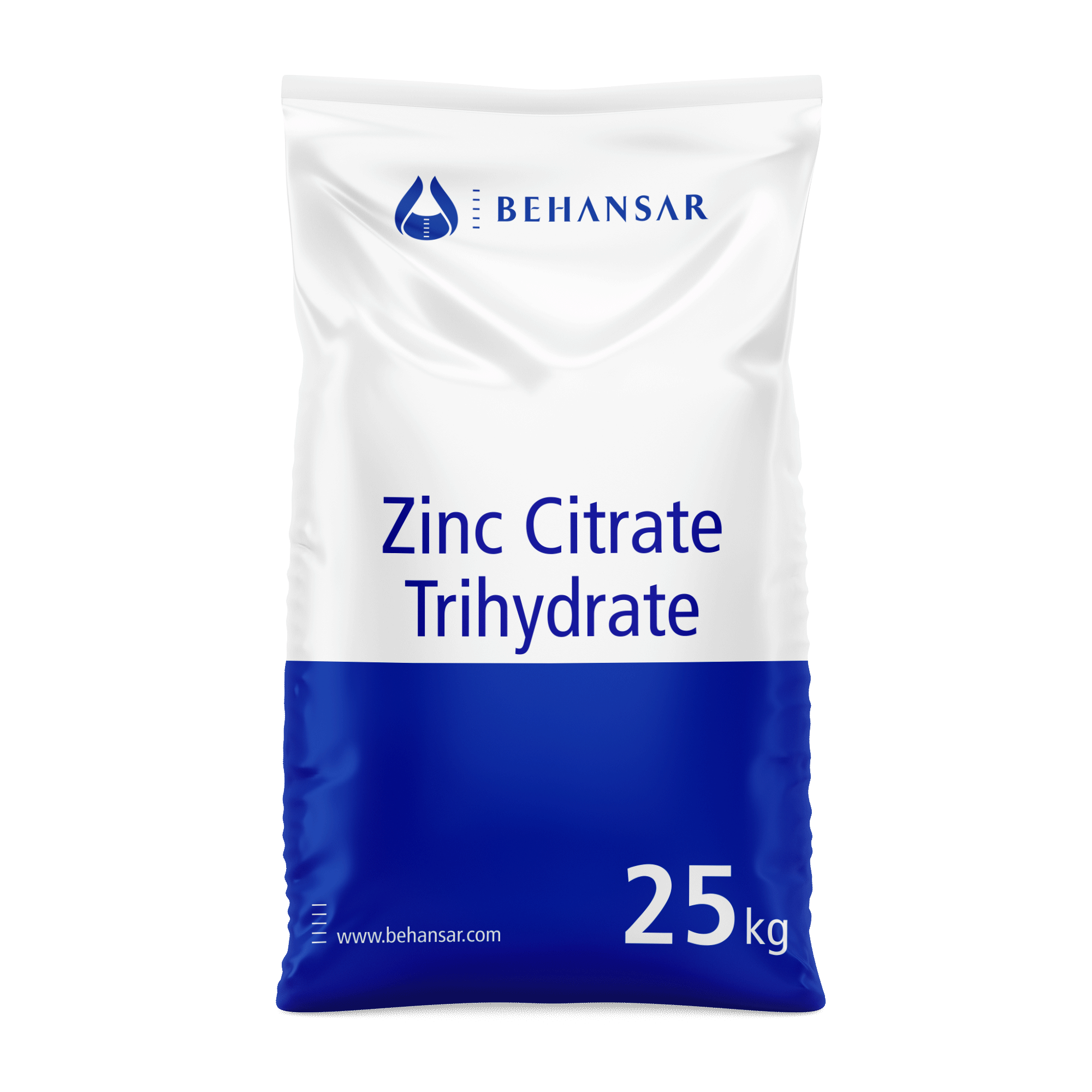Zinc Citrate Trihydrate
| Chemical Formula: | C₁₂H₁₆O₁₇Zn₃ |
| Molecular weight | 297.57 |
| .CAS No: | 546-46-3 |
| Applications: |

About Zinc Citrate Trihydrate
Zinc Citrate is a nutritional supplement containing the zinc salt form of citric acid for the purpose of providing zinc. As an essential trace element, zinc is of key importance in many biological processes, acts as an antioxidant and strengthens the immune system. Although the mechanism of action is not completely known, zinc supplementation may be used to increase immunity against viruses or may interfere with the replication of certain viruses, such as the human papillomavirus (HPV).
Zinc is an essential trace element that has a critical role in maintaining structural and catalytic functions of more than 200 enzymes involved in major metabolic pathways, including nucleic acid metabolism, protein synthesis, and cell division. Although it remains difficult to define zinc status, zinc deficiency appears to be common among children in many developing countries, negatively affecting physical growth, immune competence, neural development, and reproductive outcomes, and increasing morbidity and mortality. The WHO considers zinc deficiency to be a major contributor to the burden of disease in developing countries, especially in those with a high mortality rate. Several factors contribute to the development of zinc deficiency, including increased requirements at certain stages of the life cycle, malabsorption, impaired utilization, and increased losses attributable to repeated diarrhea. However, most often the primary cause of zinc deficiency is inadequate dietary zinc intake and low bioavailability of zinc attributable to the consumption of plant-based diets that are high in phytic acid, thus inhibiting zinc absorption. Zinc is lost in greater quantities during diarrhea, and zinc supplements have been successfully used to treat diarrhea. WHO guidelines for the treatment of diarrhea recommend zinc supplementation in combination with oral rehydration salts solution. The WHO recommends the use of the water-soluble compounds zinc sulfate (23% zinc), zinc acetate (30% zinc), or zinc gluconate (14% zinc) in the form of syrups or dispersible tablets for diarrhea management in infants. However, zinc sulfate and zinc acetate have a strong metallic, bitter, and astringent taste that needs to be masked. Moreover, the low zinc content of zinc gluconate makes this compound more expensive. An alternative zinc compound with promising sensory properties is zinc citrate. This compound has a high zinc content of 31%, is slightly soluble in water, is odorless, and has a relatively low cost.
In a recent rat study, however, zinc citrate was found to be equally as bioavailable as zinc gluconate, zinc sulfate, zinc acetate, and zinc oxide. Zinc citrate demonstrates effective absorption following oral administration.
In a study by Hoshi and van Steenberghe, a zinc citrate/triclosan toothpaste applied to the tongue dorsum appeared to control morning breath malodor for 4 hours.
Zinc citrate reduces the duration of cold symptoms, support blood sugar management, improve severe and inflammatory acne, decrease heart disease risk, and slow the progression of macular degeneration.
| Product Number | Product Name | Form | Pharmacopoeia | Solvency | Storage conditions | Color | Purity | Additional information |
|---|---|---|---|---|---|---|---|---|
| 151300053 | Zinc Citrate Trihydrate | Powder | Inhouse | Slightly soluble in water, soluble in diluted acid and partically insoluble in ethanol (96%) | Preserve in well-closed containers. | White to almost white powder | NLT 31.3% of zinc |

